|
SEO updates you need to know
Our sponsor: SEO Gets
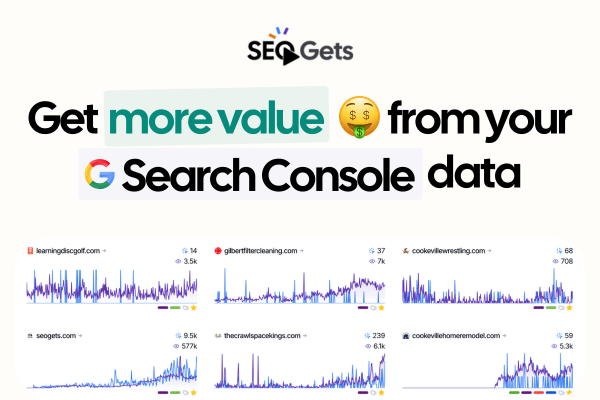
This GSC tool is a lifesaver
If you’re tired of GSC’s painful interface, you need to check out SEO Gets. It’s the best way to work with GSC data across all of your accounts.
- One Master Dashboard: See all your sites’ performance instantly - no more tab jumping or endless exports.
- SEO Features That Matter: Content decay alerts, content group tracking, annotations, and so many other features you’ll love.
- Simple, Fair Pricing: $29/month for unlimited accounts, sites, users. Or use it free if your sites are under 1k clicks/mo.
30 seconds to setup and you’ll never look back.
|
Search with Candour podcast
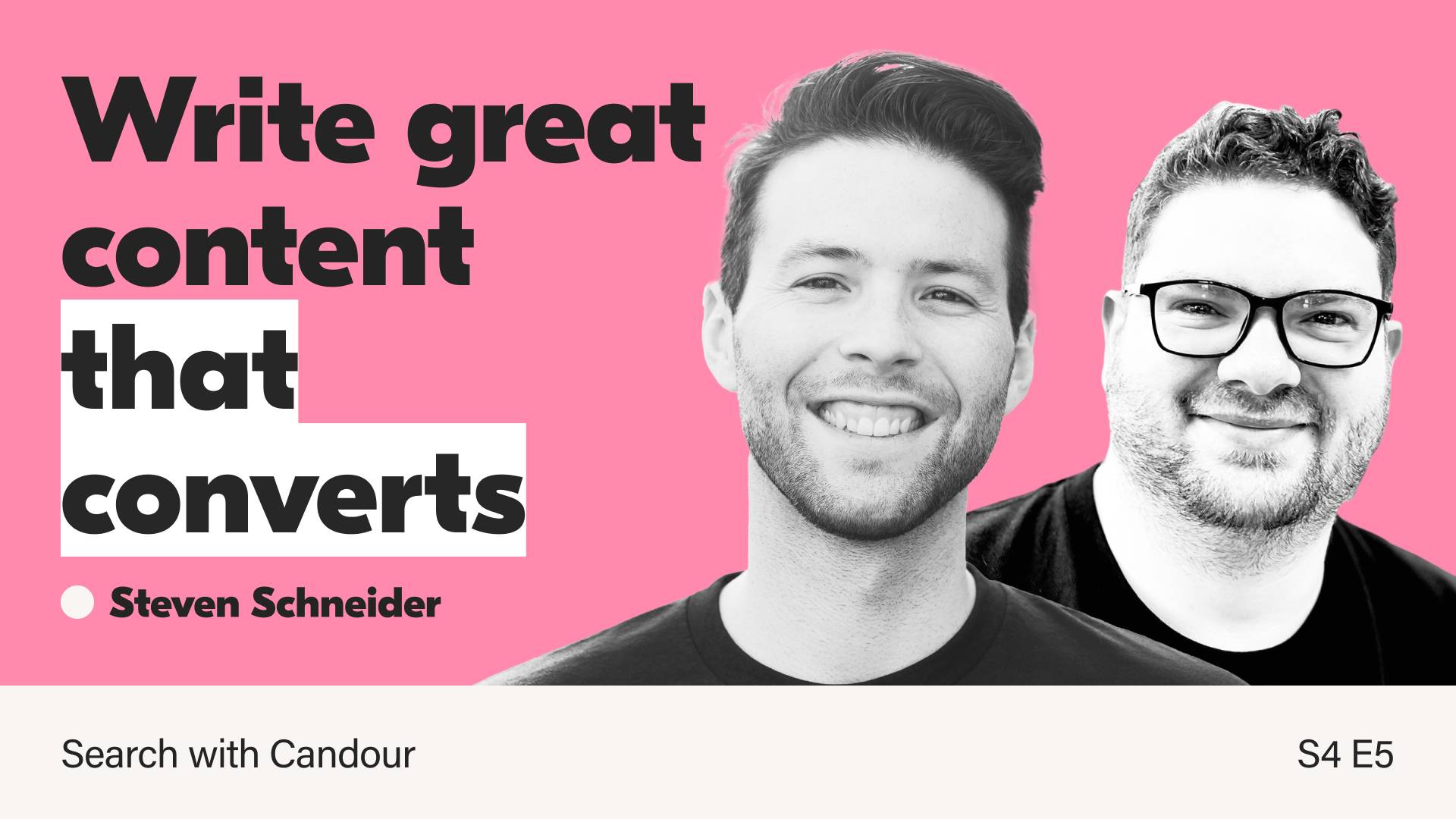
Create content that converts
Season 4: Episode 5
Jack Chambers-Ward and guest Steven Schneider from TrioSEO discuss how to create content that actually drives conversions, not just traffic, for your website.
Jack & Steven cover the importance of strong site structure, internal links, and conversion rate optimisation (CRO). They also discuss the role of user experience (UX) and how to leverage tools like Google Analytics 4 (GA4) and AI to enhance your content marketing.
|
|
|
This week's solicited tips:
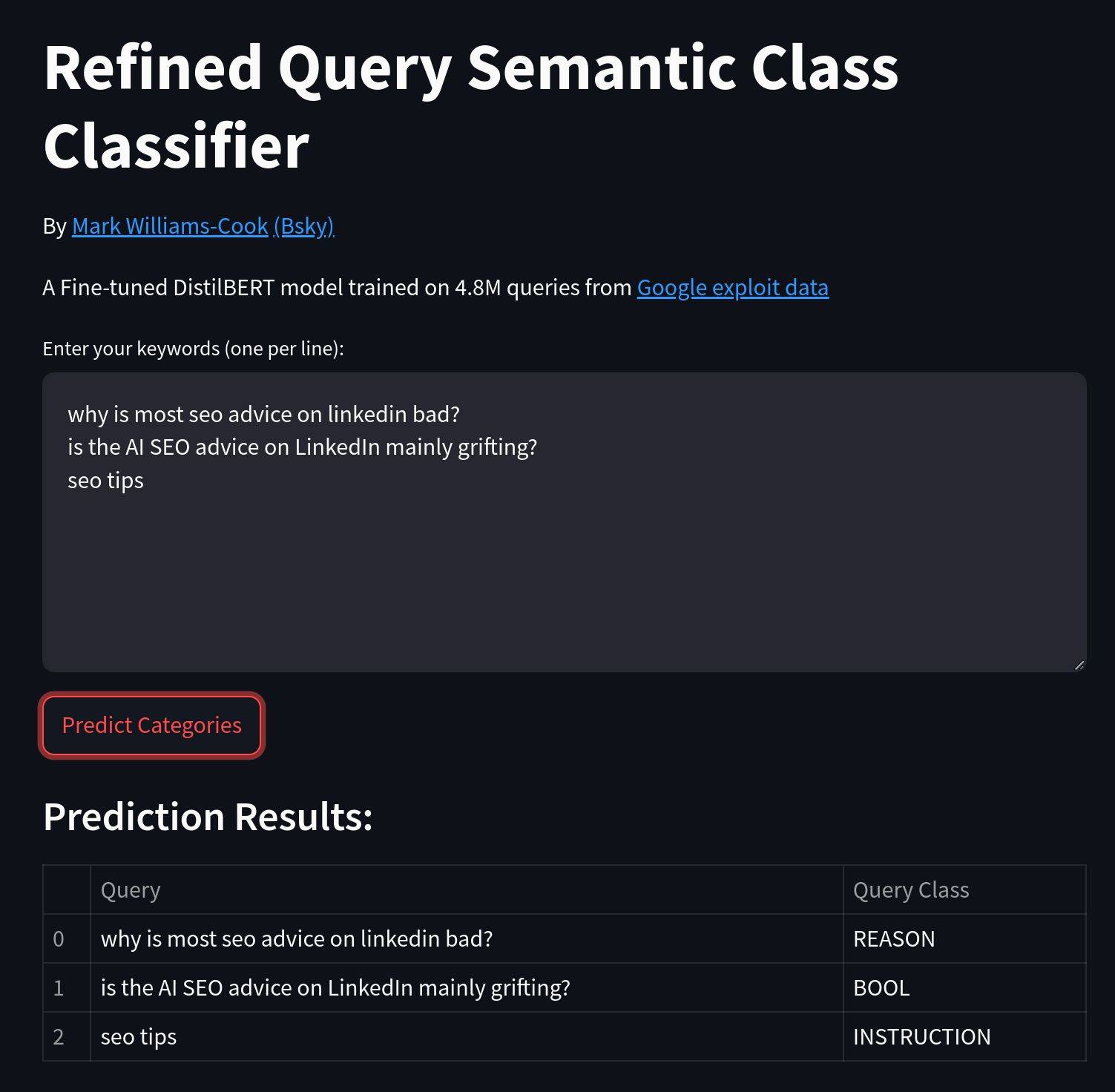
Look for correlation if your traffic is declining
One of the most common reasons clients come to Candour for SEO is for help with traffic decline, so how to you go about working out why you're losing traffic?
🖥️ Looking for patterns in data in where most of the work is. You're trying to figure out, is there a date correlation to a Google update? Is it a certain part of the site that has lost ranking? Is it a reduction in search demand? Is it a specific topic? Is it a certain category of query?
🛠️ We have a range of tools to help with this, both in-house and brilliant tools like SEO Stack which can help quickly show GSC data trends and overlay updates.
📃 My tip is this: Yesterday's tool release of the semantic query class category classifier gives you another data point that is very close to how Google is working. This is another set of data that you can run to try and diagnose traffic drops - look at how Google classifies all the queries in your client's GSC.
Is there any correlation to rq_semantic_query_class and the queries you lost traffic on?
|

Don't forget to update internal links
After you have completed a site migration, you should also update any internal links to the new locations. This isn't as hard as it sounds, because you already have the [from]/[to] URL data from the redirects, so a developer can help you do what is essentially a "find and replace" job with the content on the site.
Photo from SEOday 2025
|
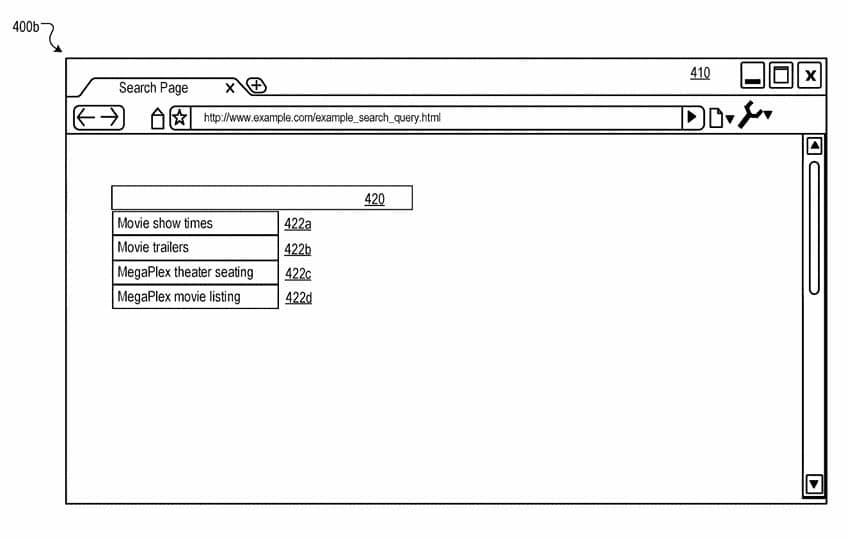
How does Google understand the context of queries?
Suggested queries from Google are generated by not only grouping similar queries into clusters based on user interactions and semantic relationships, but also their context!
Google collects contextual data from user devices (e.g., location, device type, browsing history, or prior search behavior) before calculating how likely a user is to select a specific query from that cluster. 🧪
🎙️ We cover this patent, "query composition systems" on the SEO Patent Podcast - a short 14-minute summary of the patent generated by NotebookLM.
|
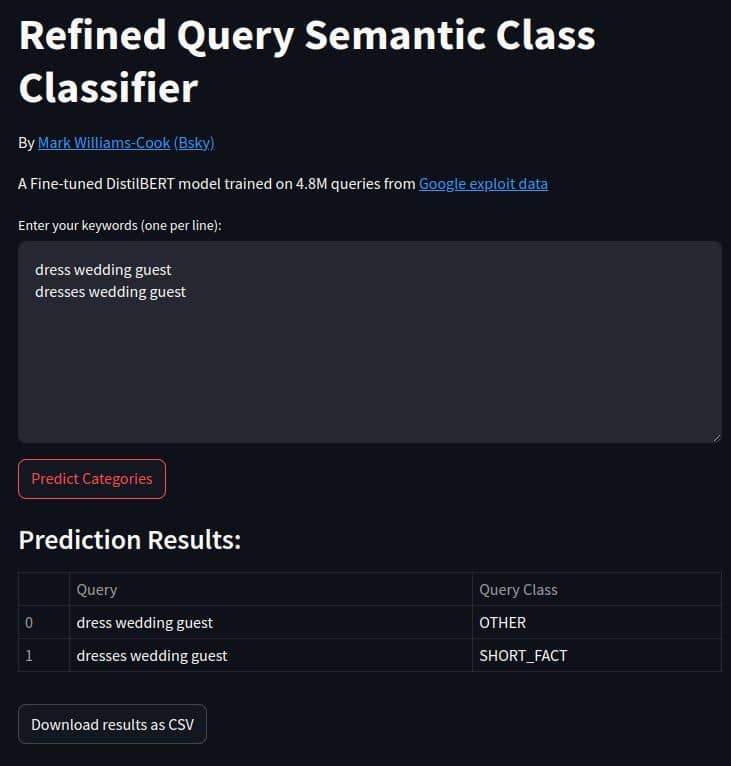
Maybe intent isn't always what you think it is
No, the rq_semantic_query_class tool is not broken, it’s that intent in reality isn’t as neat as you thought ⤵️
I’ve had a few people ask if the rq_semantic_query_class tool I published is working, because especially for “short tail” (head) queries, it regularly returns “OTHER” or for very similar queries, it returns different categories - this is very likely to be correct! Let’s explore why ⬇️ 🤔
🤓 Intent is subjective, not objective. That means the same query can mean different things to different people and Google has to try and reflect this disparity within their SERPs.
🖥️ In general, the shorter the key phrase, the broader the potential meaning. So if you enter the query “Weddings rings”, it will likely be tagged as “OTHER”. This might be someone searching for facts about wedding rings (how much should they cost), it might be someone searching for comparisons (gold vs silver), it might be someone shopping. Without an easy way to pigeon-hole the search, the “OTHER” category, as a hybrid may well be appropriate.
👯 So why in our screenshot would “dress wedding guest” be “OTHER” and “dresses wedding guest” be “SHORT_FACT”? Being a native English speaker, my interpretation would be that a search for “dresses wedding guest” is far more likely to be a research-type query researching what may be appropriate to wear at a wedding, and it is likely Google has recognised this in their user interaction data. The search “dress wedding guest”, feels more likely to be a transactional type query, but in reality has a more mixed intent and so is rated as “OTHER”.
If you don’t get the categories you expect THAT IS THE POINT OF THE TOOL.
We used 20% of the real data to blind-test the tool and it scored incredibly accurately, so if you think a categorisation is incorrect USE THE DATA TO MAKE YOURSELF CORRECT don’t just discard it because you feel like you don’t agree!
|
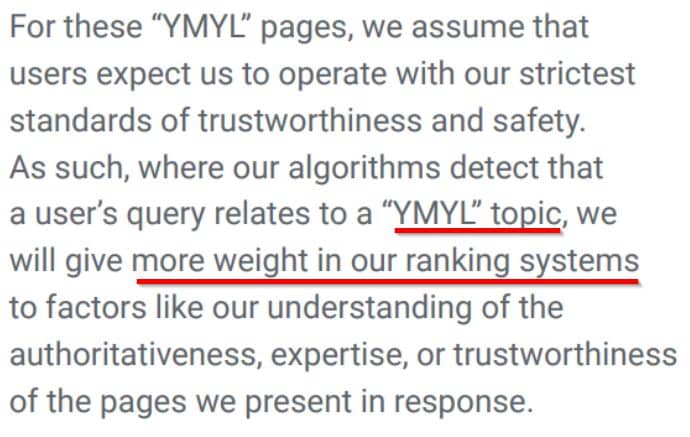
One-size-fits-all SEO strategies don't work
When you're thinking about how Google works, thinking about "the algorithm" as some set of static weightings is incorrect. ❌
📘 In Google's own documentation, they tell us the weighting of different factors is changed by the type of query.
⚖️ In Google's "How Google Fights Disinformation" they say "where our algorithms detect that a user's query related to a 'YMYL' topic, we will give more weight in our ranking systems to factors like understanding of the EEAT of the pages we present"
🚦 In short; what works for one topic, vertical, or website, may not apply to another - so it is useful to think about this when planning your strategy.
|
Refer subscribers and earn rewards!
Top Core Updates referrer leaderboard
A big thank you to our top referrers, who have signed up over 10 people to the Core Updates newsletter, go follow them!
🥇 MJ Cachón Yáñez (LinkedIn / X)
🥈 Nikki Pilkington (LinkedIn / X)
🥉 Lidia Infante (LinkedIn / X)
|
|
|
|